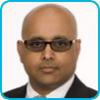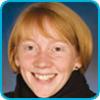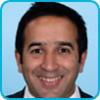Most people recover very quickly after weight loss surgery and feel ready to go back to normal activities after a few days. It is important to remember though that you have had a major operation and to take it steady for a few weeks.
Wounds - The small wounds on your abdomen will either be glued or covered with a waterproof dressings after the operation. The dressings should be left for two- three days from the day of the operation (only change if the wound is oozing or the dressing has lifted off and is no longer waterproof). By that time, the wounds are usually healed enough to remain uncovered and the stitches used are dissolvable. You can shower as normal from the day of surgery but avoid baths until wounds are fully healed approximately 6 weeks after surgery. If you notice any sign of wound infection (pain, redness, swelling or pus) you are advised to visit your Practice Nurse or General Practitioner for a wound check.
Exercise - Gentle outdoor exercise is important as well as getting plenty of sleep and keeping your fluids up. You should gradually try to increase your exercise until you are walking for 30 minutes per day. You should aim to walk at a speed that makes you slightly short of breath and sweaty.
Driving - You may drive as soon as you can comfortably wear a seat belt and are able to perform an emergency stop. You should check with your insurance company for their specific advice about driving after keyhole (laparoscopic) surgery. It is advisable to avoid heavy lifting for at least two months after abdominal surgery.
Pregnancy - Losing weight can increase fertility but we strongly recommend that you do not become pregnant for 2 years following surgery as weight loss may have effects on the unborn child. If you do not already have regular contraception it may be worth visiting your local family planning centre for advice. If you get pregnant with a gastric band, the band can be deflated during the period of pregnancy to ensure the baby gets sufficient nutrients and that you can breastfeed afterwards. The band can then be re-inflated when the time is right.
Emotion – It is common for patients to feel tearful, irritable and vulnerable in the first few weeks after surgery. This is a normal response as surgery is a life changing event. This is usually temporary and improves once you start eating more solid food and get back to your normal routine. Please contact a member of the team if you need reassurance or are finding it difficult to cope
Partying – Being socially active is very important to positive emotional wellbeing, but be careful not to overdo it. We advise you not to drink any alcohol for 3-6 months after surgery and may be more prone to the intoxicating effects of alcohol than you used to be. Also bear in mind that alcohol contains calories without any nutrients and can be high in sugar. You may resume sexual activity as soon as you feel comfortable.
Follow up
We look after our patients closely after surgery and are always available for any problems or questions you may have. The first check up after your operation is generally at six to eight weeks. After that the follow up regime will vary and you will be given further details at the time of your operation. You will require regular blood tests for the rest of your life after bariatric surgery. It is important that you attend any follow up appointments or let us know if you can’t attend so that we can re-arrange it for you and offer the original appointment to another patient.
We are funded to support patients for two years following surgery. After this time your care will be handed back to your GP.










 Weight loss surgery isn’t a ‘quick fix’ or a certainty that you will lose weight. It is a tool to help your weight loss. Successful weight loss will be entirely down to you making good dietary choices and being as physically active as possible. In the initial period after surgery you will only be able to eat very small portions and will probably not feel hungry. Both these factors may change with time.
Weight loss surgery isn’t a ‘quick fix’ or a certainty that you will lose weight. It is a tool to help your weight loss. Successful weight loss will be entirely down to you making good dietary choices and being as physically active as possible. In the initial period after surgery you will only be able to eat very small portions and will probably not feel hungry. Both these factors may change with time. This operation involves removing approximately 80% of the stomach, leaving a thin tube or sleeve (about the width of your thumb) which holds about 50-100mL of fluid (about ½ cup of tea). The ‘gut’ or digestive tract remains intact below the stomach. It works by restricting the volume of food you can eat. It also removes some stomach cells that produce a hormone that controls hunger, so patients often don’t feel as hungry afterwards. This has positive effects on diabetes and often patients can stop their medication after surgery. The operation takes about one hour and the hospital stay is 1 day.
This operation involves removing approximately 80% of the stomach, leaving a thin tube or sleeve (about the width of your thumb) which holds about 50-100mL of fluid (about ½ cup of tea). The ‘gut’ or digestive tract remains intact below the stomach. It works by restricting the volume of food you can eat. It also removes some stomach cells that produce a hormone that controls hunger, so patients often don’t feel as hungry afterwards. This has positive effects on diabetes and often patients can stop their medication after surgery. The operation takes about one hour and the hospital stay is 1 day. The gastric bypass is a more complicated procedure and involves the creation of a small pouch at the top of the stomach with staples. The remaining stomach stays in place. A section of intestine is ‘plumbed’ into this pouch so that the food bypasses the rest of the stomach and enters the intestine lower down. There are therefore two joins of the intestine inside. It works by limiting the amount you can eat at each mealtime but also by altering the hormone levels produced by the gut to improve diabetes and make you less hungry. The operation takes about one hour and the hospital stay is usually 1 day.
The gastric bypass is a more complicated procedure and involves the creation of a small pouch at the top of the stomach with staples. The remaining stomach stays in place. A section of intestine is ‘plumbed’ into this pouch so that the food bypasses the rest of the stomach and enters the intestine lower down. There are therefore two joins of the intestine inside. It works by limiting the amount you can eat at each mealtime but also by altering the hormone levels produced by the gut to improve diabetes and make you less hungry. The operation takes about one hour and the hospital stay is usually 1 day.